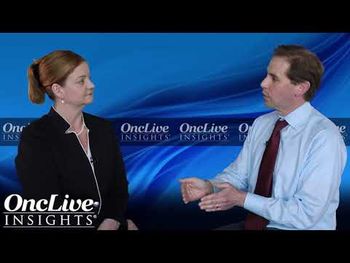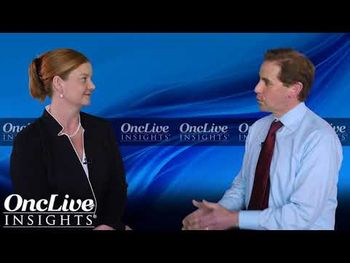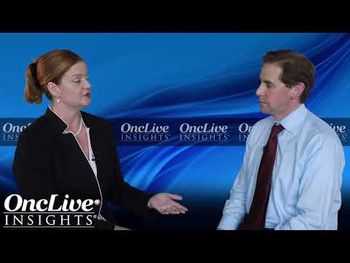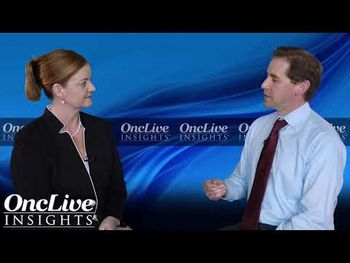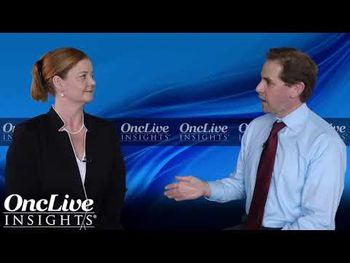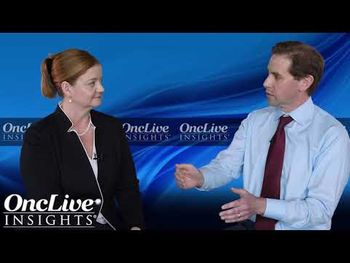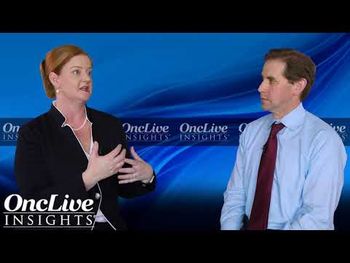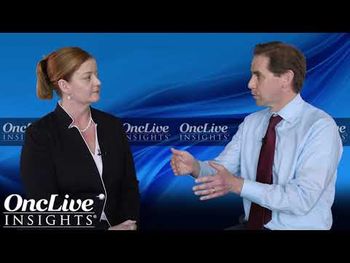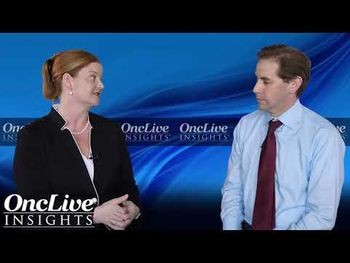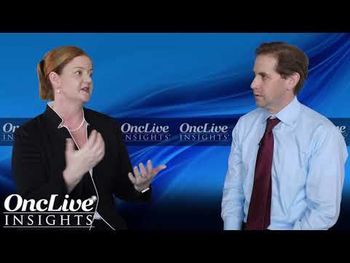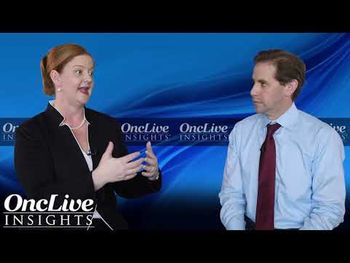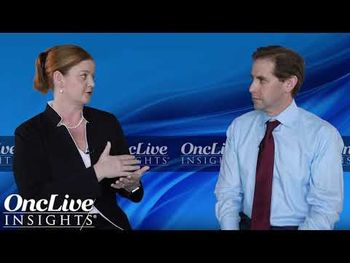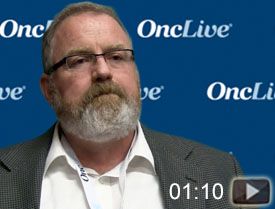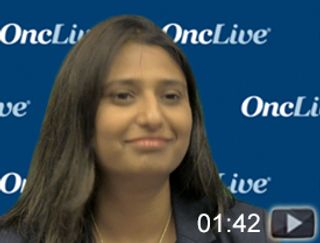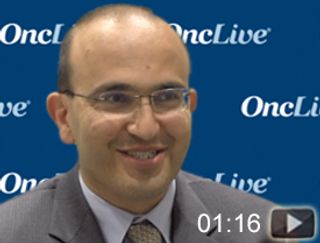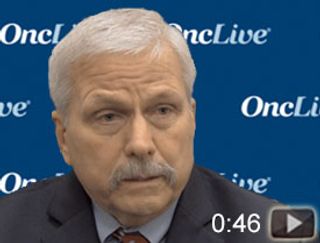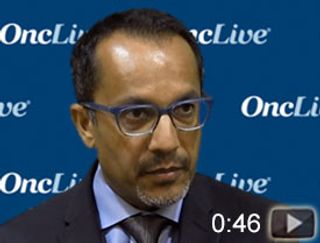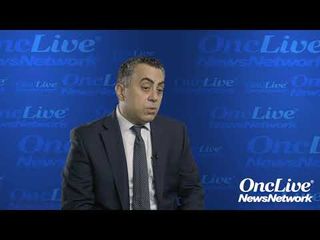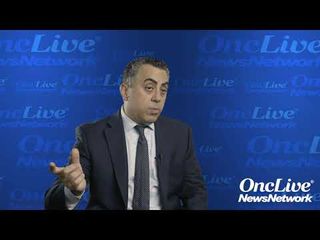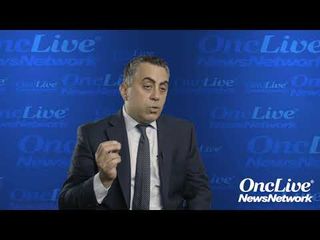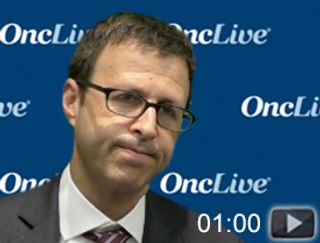
Gastrointestinal Cancer
Latest News
Latest Videos

CME Content
More News

Daniel H. Ahn, DO, oncologist and internist, Mayo Clinic, discusses the role of immunotherapy in treating patients with gastric/gastroesophageal cancers.

Combination therapy with the PD-L1 inhibitor atezolizumab and the MEK inhibitor cobimetinib failed to improve overall survival versus regorafenib in previously treated patients with locally advanced or metastatic colorectal cancer, according to topline findings from the phase III IMblaze370 study.
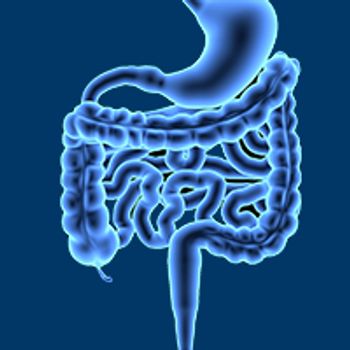
Findings from the phase III TAGS trial showed that TAS-102 (trifluridine/tipiracil; Lonsurf) extended overall survival in previously treated patients with metastatic gastric cancer.
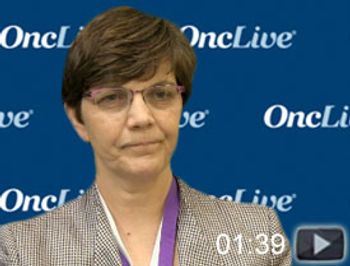
Diane Simeone, MD, director, Pancreatic Cancer Center, associate director, Translational Research, NYU Langone’s Perlmutter Cancer Center, discusses the importance of mutational analysis in the treatment of patients with pancreatic cancer.

Immunotherapy has arrived in the gastrointestinal cancer landscape, and while not all patients will benefit from these agents, those who do are likely to have long-lasting responses, explained John L. Marshall, MD.

Eric A. Collisson, MD, associate professor, Department of Medicine, University of California, San Francisco Helen Diller Comprehensive Cancer Center, discusses the difficulty of diagnosing cholangiocarinoma.
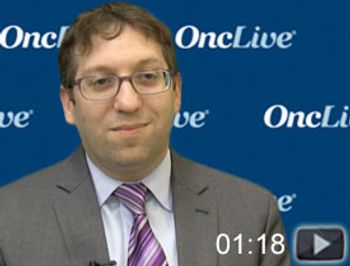
Paul E. Oberstein, MD, assistant professor of medicine, assistant director, Pancreatic Cancer Center, director, Gastrointestinal Medical Oncology Program, NYU Langone’s Perlmutter Cancer Center, discusses the use of PEGPH20 in advanced pancreatic cancer.
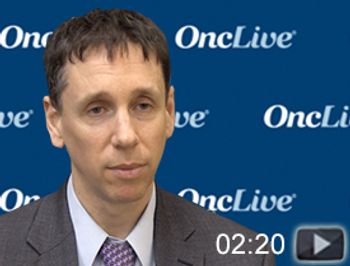
Gregory L. Beatty, MD, PhD, assistant professor of medicine, director of Tanslation Research, Pancreatic Cancer Research Center, University of Pennsylvania Perelman School of Medicine, discusses the potential for immunotherapy in gastrointestinal malignancies.
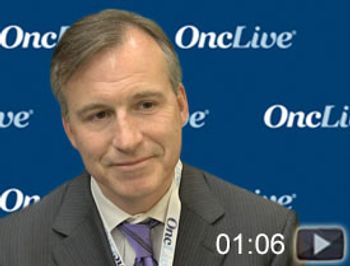
Theodore H. Welling MD, associate professor, department of Surgery, director, Liver Tumor Program, NYU Langone’s Perlmutter Cancer Center, discusses the use of selective internal radiation therapy (SIRT) in patients with hepatobiliary cancers.
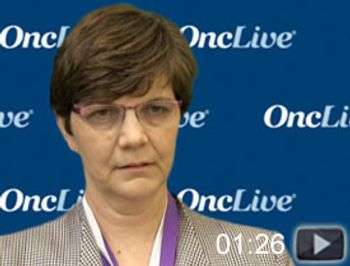
Diane Simeone, MD, director, Pancreatic Cancer Center, associate director, Translational Research, NYU Langone’s Perlmutter Cancer Center, discusses emerging subtypes of pancreatic cancer.
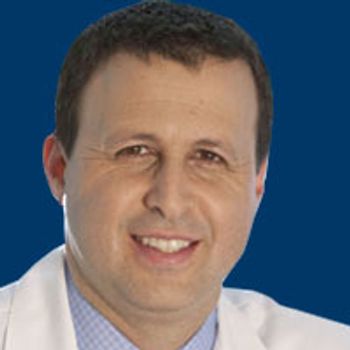
Second-line regorafenib (Stivarga) continued to show antitumor activity regardless of prior dose or time to progression on frontline sorafenib (Nexavar) for patients with unresectable advanced hepatocellular carcinoma.
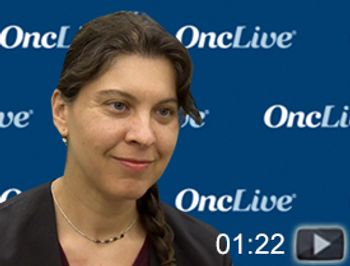
Chloe E. Atreya, MD, PhD, assistant clinical professor, Department of Medicine, University of California, San Francisco Helen Diller Family Comprehensive Cancer Center, discusses questions regarding sidedness in colorectal cancer.
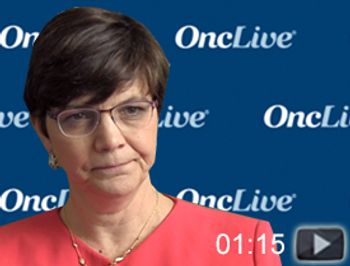
Diane Simeone, MD, director, Pancreatic Cancer Center, associate director, Translational Research, NYU Langone’s Perlmutter Cancer Center, discusses unmet needs in the treatment of patients with pancreatic cancer.
